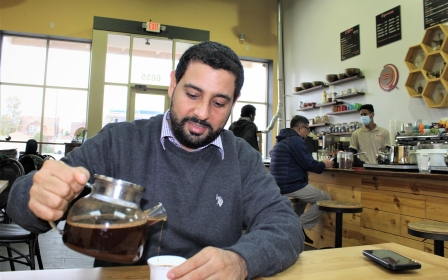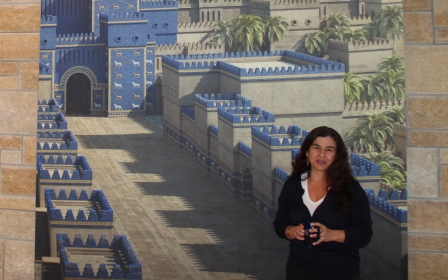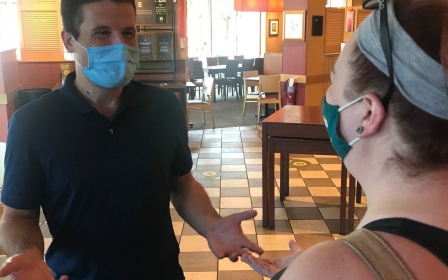US Democrat faces backlash over praising ex-Israel PM who killed his grandparents
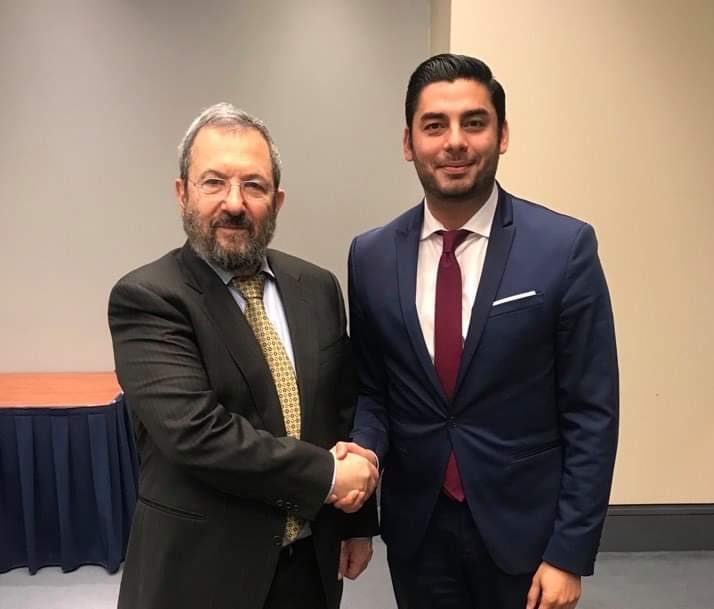
Congressional candidate Ammar Campa-Najjar has come under fire for touting a 2019 meeting with Ehud Barak, a former Israeli prime minister who led the military operation that killed his grandparents in 1973, while promoting his pro-Israel credentials ahead of next week's election.
Several times this week, Campa-Najjar posted a photo of himself and the former Israeli PM smiling and shaking hands.
"Last year, I sat and met with former prime minister and legendary commando Ehud Barak to talk peace," the congressional candidate posted on Tuesday.
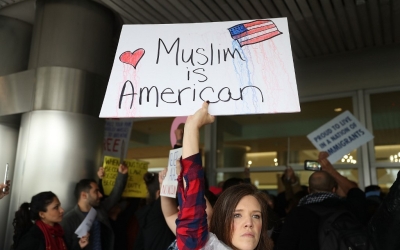
"Those who know the history here, know this embrace may be one of the strongest acts toward a peaceful future and away from a painful past seen in a generation."
Campa-Najjar, a Democrat, is running against Republican Congressman Darrell Issa for a House seat in Southern California's 50th Congressional District, which has been a Republican stronghold for decades.
While both men are Arab American, their campaigns have focused on which is the most supportive of Israel.
According to OpenSecrets, Campa-Najjar in 2018 accepted around $43,000 from pro-Israel lobby groups and around $24,000 in 2020. The website did not report any such campaign contributions toward Issa's election in 2018, but in 2020 he accepted just over $10,000.
Middle East Eye could not independently verify those amounts.
A bloody history
Many Palestinian Americans were taken aback by Campa-Najjar's post due to his family's specific history with the former prime minister.
Campa-Najjar's paternal grandfather, Muhammad Youssef al-Najjar, known as "Abu Yousef", was thought to be a senior member of the Black September group, which took hostage and killed nine Israeli athletes at the 1972 Munich Olympics after failing to get Israel to meet their demands and release 230 Palestinian political prisoners.
Barak, who commanded an elite unit in the Israeli army at the time, led the retaliatory mission that resulted in the killing of Abu Yousef and his wife in front of Campa-Najjar's father in their family home one night.
"What began as a conversation that could have been tense ended up being one of reconciliation and peace, which I felt was important," Campa-Najjar told Jewish Insider of his meeting with Barak in a recent interview.
"It was a very cathartic experience," he said.
In the past, Campa-Najjar, whose mother is Mexican American, had gained support from pro-Palestinian camps for sharing his family's story.
Last year he joined Congresswoman Rashida Tlaib's "#MyPalestinianSitty" Twitter campaign to honour Palestinian grandmothers.
"#MyPalestinianSitty was killed in her own home 16 yrs before I was born. She never hurt a soul," Campa-Najjar posted in August 2019. "The last memory her children have of her is stepping over her to get to the doorway."
'We don’t need you'
Several pro-Palestinian advocates railed against Campa-Najjar, accusing him of exploiting and betraying his Palestinian heritage for electoral clout.
Noura Erakat, a Palestinian American human rights lawyer and professor at Rutgers University, posted a series of tweets slamming Campa-Najjar's campaign move.
"You opportunistically used your Palestinian identity to fundraise & now throwing them under the bus to 'win'. We don’t need you," Erakat said.
Her post prompted discussion, with most agreeing, but some expressing sympathy for Campa-Najjar's position.
Samer Sinijlawi, chairman of the Jerusalem Development Fund, told Erakat that the community should still stand behind Campa-Najjar, arguing that many Palestinian leaders had shaken hands with Barak in the past during peace negotiations.
Sinijlawi said any Palestinian American representation in Congress was better than none, but Erakat was resolute.
"He could have easily said this man killed my grandparents in front of my dad and I am willing to forge a future that ensures dignity for us all without obscuring that history and hailing him as a 'legendary commando'," Erakat said. "There is no diplomacy without self-respect."
In the end Sinijlawi agreed with her position, but still called for the community "to advise him and support him with these ideas".
"He is a young Palestinian trying to find a spot in the American political system," Sinijlawi said.
Others were not so willing to express sympathy.
Omar Baddar, a Palestinian-American political analyst who has worked with several leading human rights groups, slammed the California native, accusing him of making the post because he had been slipping in the thus-far neck-and-neck race.
"You could’ve been principled & accepted your electoral setbacks w/dignity. Instead, you flailed desperately & rushed to embrace anyone, no matter how awful, in the hope it might give you a boost," Baddar said in a tweet response to Campa-Najjar.
"I doubt it'll work, but even if it does, your community sees through you."
Marc Lamont Hill, a professor at Temple University in Philadelphia who was sacked by CNN in 2018 for speaking up for Palestinian rights, was clearly disappointed with the move.
"As a non-Palestinian, it's not my place to call you a compete sellout. So I won't," Hill said in a retweet of Campa-Najjar's post.
"You can go ahead and call him a sell-out," journalist Hashem Said responded.
"The equivalent example would be a black person posing and smiling with a Ku Klux Klan member who murdered his grandparents and was responsible for killing a small town's worth of black folk."
Middle East Eye delivers independent and unrivalled coverage and analysis of the Middle East, North Africa and beyond. To learn more about republishing this content and the associated fees, please fill out this form. More about MEE can be found here.


